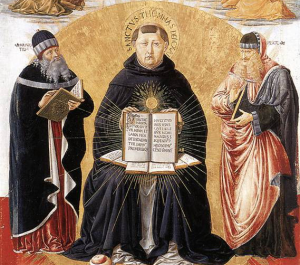Seven or eight years ago, I was invited by a group of priests of the Marquette (Michigan) diocese to give a series of talks on music and morality. They were very receptive to my approach and suggested that I might set down my thoughts in a book. Hence the memoir I mentioned in the previous post. I chose the memoir format because music and morality are so difficult to write about in the abstract. And indeed, I more recently gave a similar talk at the University of Virginia’s St. Anselm Institute and faced some tough questions which, to be honest, I’ve yet to sort out, at least for an audience broader than that of like-minded Catholic priests in the Midwest.
Most people evaluate music personally and subjectively. Indeed, they are unashamed to do so. De gustibus non disputandum est. On matters of taste, there can be no dispute. So to write that some music might have moral implications, that some styles of music might be right or wrong, even good or evil, is at best ludicrous and at worst dangerous. So the thinking goes. Another way to put this is that there is rational way to come to an agreement about quality music. Whatever powers we grant to reason, they do not include the power to judge between musical tastes.
Oddly enough, morality suffers from many of the same problems. Those who disagree on matters of sexual mores, economics, freedom of speech, gun ownership, foreign policy, or virtually any other issue rarely make any headway toward agreement by trotting out rational arguments. Is this evidence of relativism, that any moral stance can be justified from some one person’s perspective or another? That doesn’t pass the sniff test. When we talk about right and wrong, we expect these terms to pack more punch. We expect that moral insights will create obligations to adopt certain stable behaviors and attitudes. For example, theft is wrong, and morally responsible people cultivate a personal aversion to stealing. We don’t like to excuse the thief on the grounds that de gustibus non disputandum est. Therefore, our broad cultural failure to discuss moral matters rationally must have a root other than personal taste. On Facebook, it seems that my liberal friends characterize conservatives as irrational, or at best ignorant, ill-bred and under-educated. And conservative return the favor.
So when matters both of music and of morals cannot be discussed rationally, what am I, aspiring author, to do?
I was puzzling over just that question seven years ago when I pulled off the shelf a copy of Alasdair MacIntyre’s After Virtue. I knew that it was an Important Book. However…almost all references I had seen to it at that time popped up in right wing editorials, to add weight to boilerplate conservative arguments. Yawn. So I had avoided it, assuming that it was a more sophisticated version of Bill Bennett’s The Book of Virtues. But I also recognized that for my book to be worth anything, I needed to strengthen my knowledge of moral philosophy. So I decided to stick it out with MacIntyre.
And boy, was I wrong about him. The first two chapters of After Virtue explained to me exactly why I was unable to speak about music or morality in rational terms. And the rest of the book (as well as the three further texts considered to be part of a tetralogy) laid the groundwork for addressing the problem. MacIntyre’s solution famously called for “another–doubtless very different–St Benedict.” I was won over completely by that point.
The four books of his acclaimed tetralogy:
After Virtue (1981)
This is still probably his most important, simply because it marks M’s major departure from his earlier work and sets forth his penetrating method of analyzing the ills of contemporary Western culture. I will be using this book many times to explain why we modern Catholics in Europe and the U.S. have such difficulty understanding and discussing things like liturgy, music and religious life. One of his major ideas is that the work of philosophy takes place in a tradition and that the positions that contemporary moral philosophers take can only be rationally explained by telling a story about the history of moral philosophy. So the first nine chapters of AV give us a kind of narrative in reverse, showing how our modern emotivist culture only makes sense as the partial survival of the Aristotelian/Augustinian synthesis of the late Middle Ages, undone by the ‘hidden catastrophes’ of voluntarist nominalism, the Reformation and especially the Enlightenment. The second half of the book is his first attempt to vindicate the older tradition in such a way as to purify it from the problems of Aristotle’s own cultural limitations (e.g. Aristotle (in-)famously did not think that women, slaves, or barbarians could be rational).
Whose Justice? Which Rationality? (1988)
This book with the annoying title is the most difficult of the four and maybe the most disquieting. In it, MacIntyre examines four different cultures and compares how the concepts of ‘justice’ and ‘rationality’ are used and understood. The key concept of this book that I would like readers to take away from this post: rationality is a communal achievement and therefore different cultures actually do have different concepts of rationality. This is why discussion of music and morality has the appearance of irrationality: liberals and conservatives sound completely rational within their own echo chambers, but sound utterly irrational across the aisle. This is because each side has crafted different standards of rationality. MacIntyre believes that some systems of rationality are better than others, but this has to be proved by a very special kind of debate.
Three Rival Versions of Moral Enquiry (1990)
This book repeats and extends many of the arguments of WJ?WR? (the title isn’t better as an acronym!). It’s a bit easier to grasp. Most importantly for me is that MacIntyre shows how it is possible to be converted to a better tradition of morality or rationality (say, for example, to undergo conversion in a monastery), and also shows how entire traditions can be rationally defeated. This is important because MacIntyre is most emphatically not a cultural relativist, as much as some of the above might seem to indicate.
Dependent Rational Animals (1999)
This book might turn out to be his crowning achievement when all is said and done. It’s a real tour de force that shows how our ability to become independent rational thinkers requires us to acknowledge our limitations as animals (until the last couple of centuries, humans were typically classed by Aristotle, Aquinas, etc with animals and not apart from them), and the fact that for large portions of our life, we are dependent upon others: when we are children, when we are elderly, when we are sick or injured or depressed, and so on. The resulting “virtues of acknowledged dependence” help us to recognize in the Other a person like ourselves. In this book, MacIntyre finally discerns a way to anchor Aristotle’s teaching on virtue in a genuine human nature, consonant with the best contemporary science and anthropology.
Thus he finishes the argument from the second section of After Virtue. The key turns out, in some ways, to be his conversion to Catholicism after writing AV, and his subsequent engagement with Thomas Aquinas. Thomas acknowledges Christian virtues unknown to Aristotle, such as humility and compassion. My sense is that wrestling with the insights of the Dominican saint helped to open MacIntyre to the further insights of the best postmodern feminist theory and more generally the experiences of women, who usually are closer to the lives of dependent children and to the disabled.
I will undoubtedly make many references to this book as well, though I am better versed in the first three books.
This lengthy post is necessary because of the repeated references I will need to make to MacIntyre. That said, I’ve hardly done justice to his work. If you are interested in diving in, I recommend, as a guide, Reading Alasdair MacIntyre’s After Virtue by Christopher Stephen Lutz.

